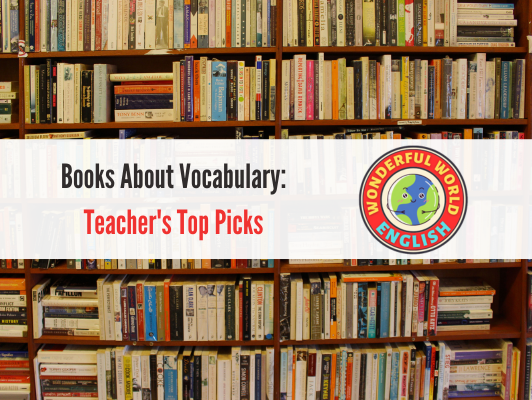Contents
Toggle
Meet David De’ Ath, founder, editor, and writer at Wonderful World English. With his extensive background as an English teacher, David provides valuable insights and practical tips on ESL for students and teachers alike.
Books dedicated to vocabulary building serve as a powerful tool for individuals looking to enhance their command of the English language.
A rich vocabulary is fundamental for effective communication, academic success, and professional growth.
These books introduce a myriad of new words and teach the nuances of their usage, etymology, and contextual meanings.
Different books approach the subject of vocabulary expansion in diverse ways, with some focusing on thematic word lists, exercises, and practical usage that are integral to mastering the English language.
Others incorporate methods such as storytelling or experiential learning to make the process more engaging.
For English language learners and native speakers alike, vocabulary books are invaluable resources for improving both written and spoken language skills.
Selecting the right vocabulary book is crucial as it should align with the reader’s current proficiency level and specific learning goals.
Beginner learners might benefit from books that cover fundamental words and phrases, while advanced learners can look for resources that delve into the intricacies of English vocabulary.
Regardless of the level, consistent practice and exposure to new words are key to vocabulary retention and expansion.

The Importance of Vocabulary in Communication
A rich vocabulary enhances the clarity and effectiveness of communication, enabling speakers and writers to convey their messages with precision and impact.
Understanding Nuance and Context
Vocabulary is crucial in interpreting the nuance and context of language.
Words are not just symbols for objects or ideas; they carry specific connotations and subtle differences in meaning that can alter the receiver’s understanding.
For instance, the adjectives “thrifty” and “stingy” both refer to someone who is unwilling to spend money, yet “thrifty” has a positive connotation of prudence, while “stingy” implies a negative judgment of meanness.
Vocabulary’s Role in Effective Writing and Speaking
When one has a broad vocabulary, one’s speaking and writing skills are significantly enhanced.
This is because they can choose the most appropriate words for any given context, which allows for more persuasive and articulate communication.
Effective communicators can tailor their language to their audience, resonating with others’ emotions and intellect through word choice.
A more extensive vocabulary also aids in crafting compelling narratives, arguments, or reports, establishing credibility, and capturing attention.
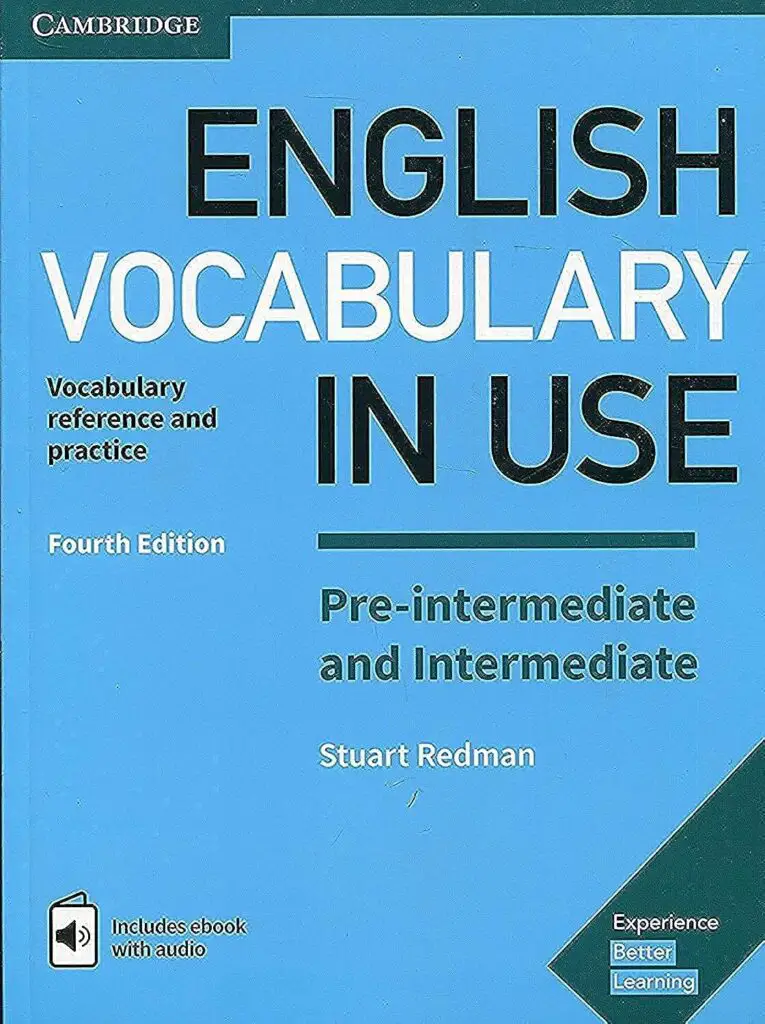
Selecting the Right Vocabulary Books
When it comes to enhancing vocabulary, the choice of books is crucial.
They should meet the learner’s current level and address their specific goals, such as preparing for exams like the SAT, GRE, or TOEFL.
Criteria for Beginner to Advanced Learners
For beginner learners, books should be more than just a list of words; they need context and should be engaging.
“English Vocabulary in Use“ is a series that starts at the elementary level and progresses to an advanced level, offering clear explanations and practice exercises.
Advanced learners, on the other hand, require vocabulary books like “Word Power Made Easy“ that delve deeper into word roots and usage, providing a more comprehensive understanding of the English language.
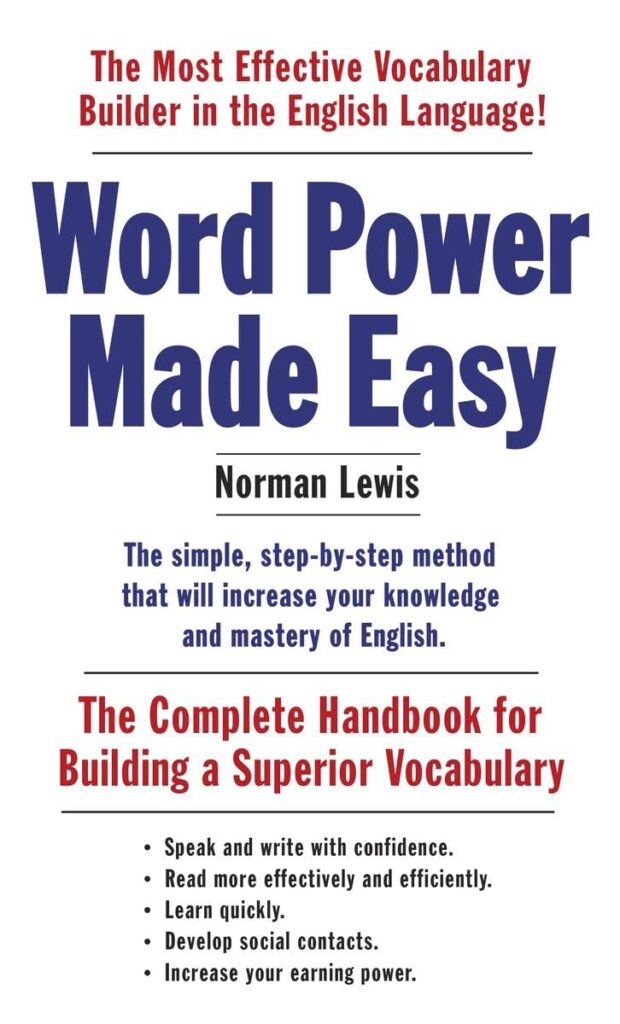
Books for Specialized Exams: SAT, GRE, TOEFL
Learners preparing for exams such as the SAT, GRE, or TOEFL require specialized vocabulary books that target the specific type of questions they will encounter.
Vocabulary books like “McGraw-Hill’s 400 Must-Have Words for the TOEFL“ are tailored for test-takers, focusing on high-frequency words.
For the SAT and GRE, options like the “Barron’s SAT Vocabulary Flash Cards“ and “Essential Words for the GRE“ are structured to help learners perform better by familiarizing them with the vocabulary commonly encountered on these exams.
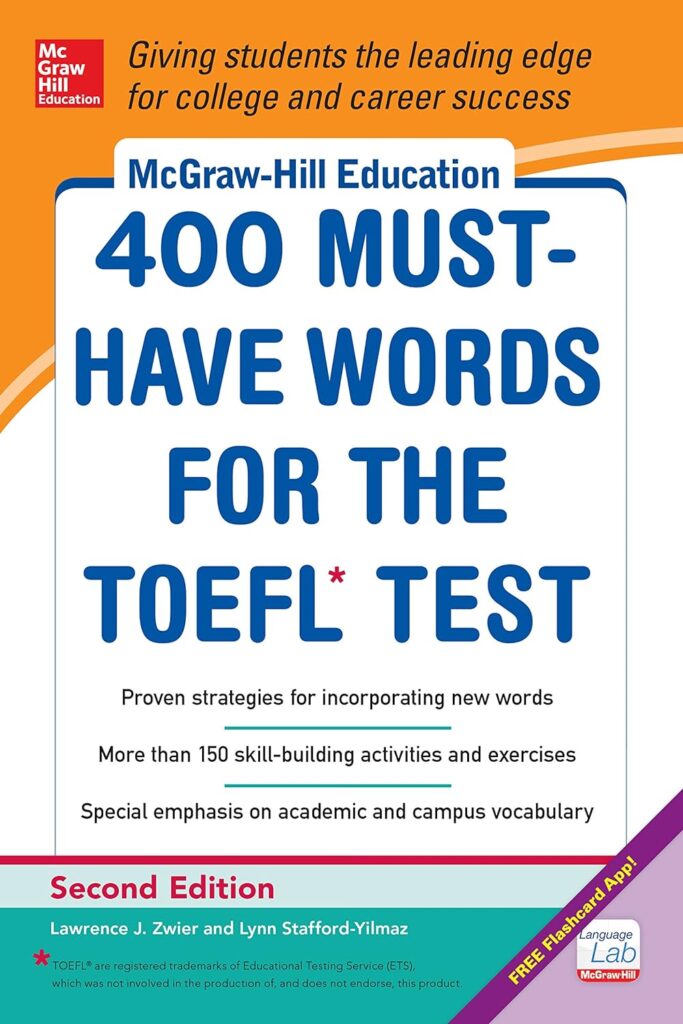
Notable Vocabulary Books and Their Features
Selecting the right vocabulary book can transform one’s command of the English language, offering a structured path to enhancing one’s lexical repertoire.
Norman Lewis’s Contributions to Vocabulary Learning
Norman Lewis was influential in the field of vocabulary development through his seminal work, Word Power Made Easy.
This book is not merely a list of words but a guide to understanding the roots and origins of words to enable lifelong learning.
Its exercises make it a practical workbook for expanding one’s vocabulary effectively.
English Vocabulary in Context
The acquisition of vocabulary in context is key to retention and comprehension.
Books like the Oxford Picture Dictionary utilize thematic readings to help learners connect words with visual references, boosting memorization and real-world application.
This method has proven beneficial for visual learners and has been used extensively in ESL education.
Specialized Dictionaries and Thesauri
For those in pursuit of precision and depth, specialized dictionaries and thesauri are indispensable tools.
Merriam-Webster is renowned for the Merriam-Webster’s Vocabulary Builder, designed to enhance understanding through etymology and context.
Similarly, thesauri cater to expanding one’s vocabulary through synonyms and antonyms, reinforcing the use of new words in varied settings.
Related: Best Books to Learn English: Top Picks for Everyone
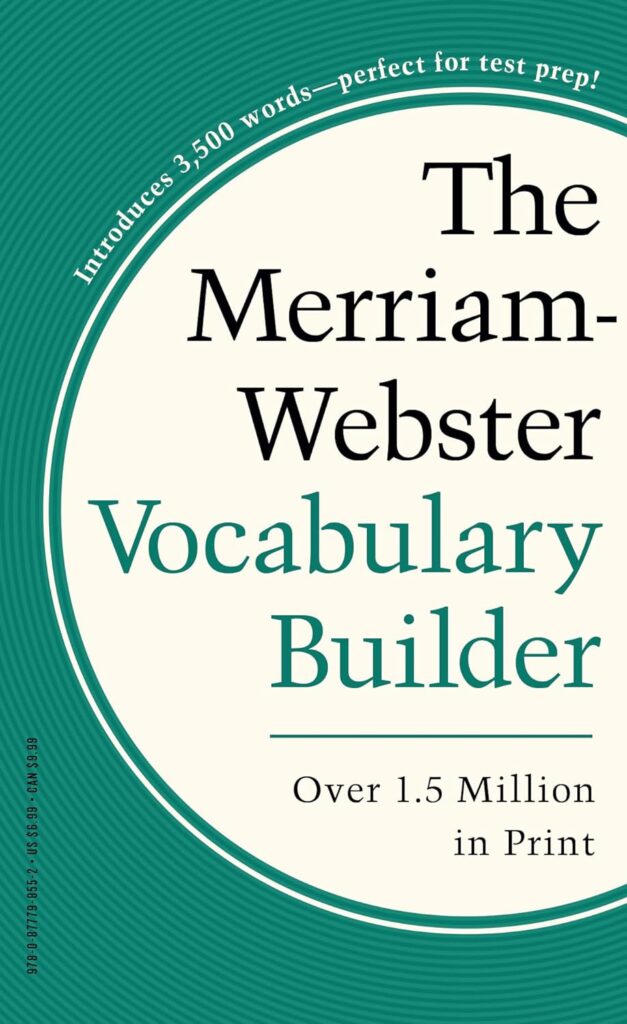
Using Literature to Enhance Vocab
Reading both fiction and non-fiction is a proven strategy to expand vocabulary.
Engaging with diverse genres introduces readers to a spectrum of language and context.
Fiction and Non-Fiction as Tools for Vocabulary Growth
Fiction offers a rich reservoir of words through storytelling.
Novels like “Harry Potter“ by J.K. Rowling enchant readers with a lexicon of magical terms that bolster the imagination along with one’s vocabulary.
Concurrently, modernist works like James Joyce’s “Ulysses“ can present a linguistic challenge with its stream-of-consciousness style, pushing readers to explore and learn.
Non-fiction, on the other hand, provides factual information that often incorporates specialized vocabulary related to particular fields.
Whether it’s a biography, historical account, or a scientific treatise, non-fiction tends to familiarize readers with technical terms and concepts.
When one examines classics such as “The Great Gatsby“ by F. Scott Fitzgerald, it’s not only the Roaring Twenties that come alive but also the lexicon of a bygone era.
Similarly, “The Little Prince“ by Antoine de Saint-Exéry imparts wisdom through allegory, offering new words and idiomatic expressions that can be both enlightening and educational.
Even children’s literature is immensely beneficial for vocabulary acquisition.
The classic “Charlotte’s Web“ by E.B. White, for instance, uses simple yet powerful language that can help younger readers develop their comprehension and vocabulary skills.
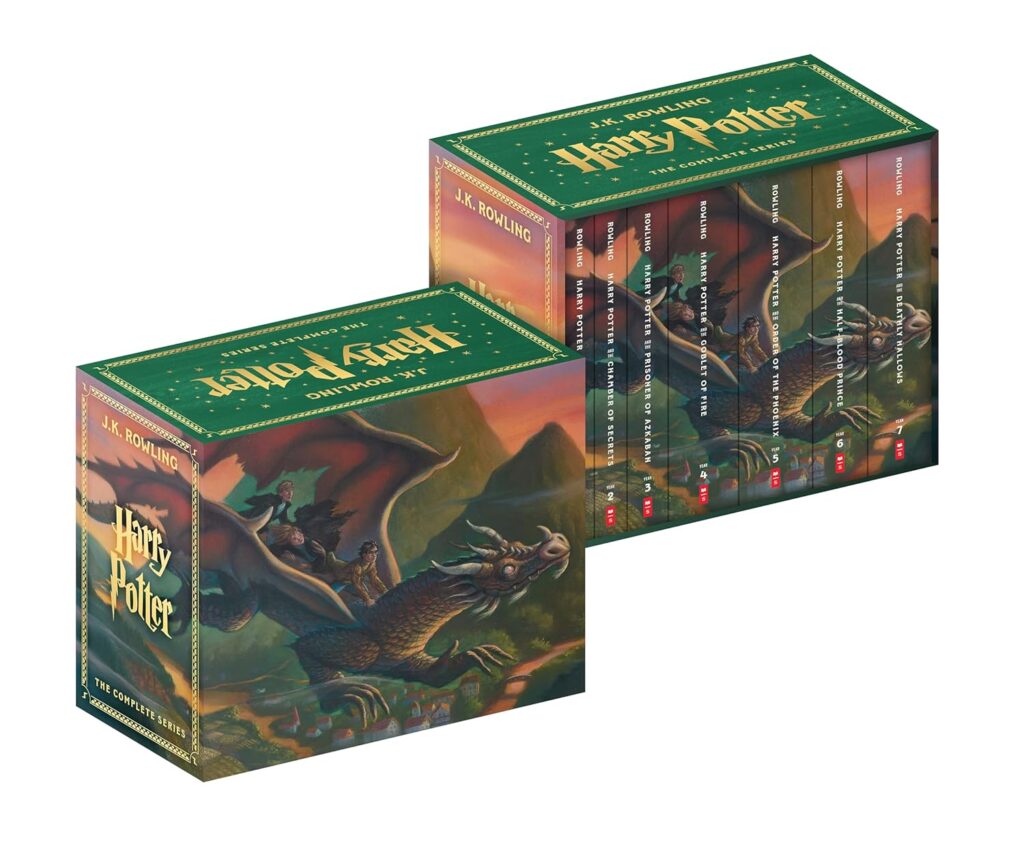
Roots, Etymology, and Language Skills
In the quest to master vocabulary, an understanding of Greek and Latin roots—the fundamental elements of many English words—enhances language skills and comprehension.
The Impact of Greek and Latin Roots
Greek and Latin roots are the building blocks of countless English words.
Integration of these roots into teaching strategies can greatly expand a learner’s vocabulary, as illustrated by resources such as “Building Vocabulary with Greek and Latin Roots”.
One discovers that familiarizing oneself with just the 100 most used Greek and Latin roots can unlock the meanings of thousands of words.
Through decoding the root words, one’s vocabulary can grow exponentially, aiding in reading comprehension and language proficiency.
Etymology and the English Language
Etymology delves into the origin of words, tracing back to their ancestral roots and examining their evolution over time.
A strong grasp of etymology can lead to a profound recognition of the English language as a dynamic and ever-evolving entity.
For example, the book “The Greek & Latin Roots of English” explores how these ancient languages have shaped English, revealing patterns that can be applied to understand new words.
This knowledge represents a crucial part of language skills, providing a foundation for both academic success and lifelong learning.
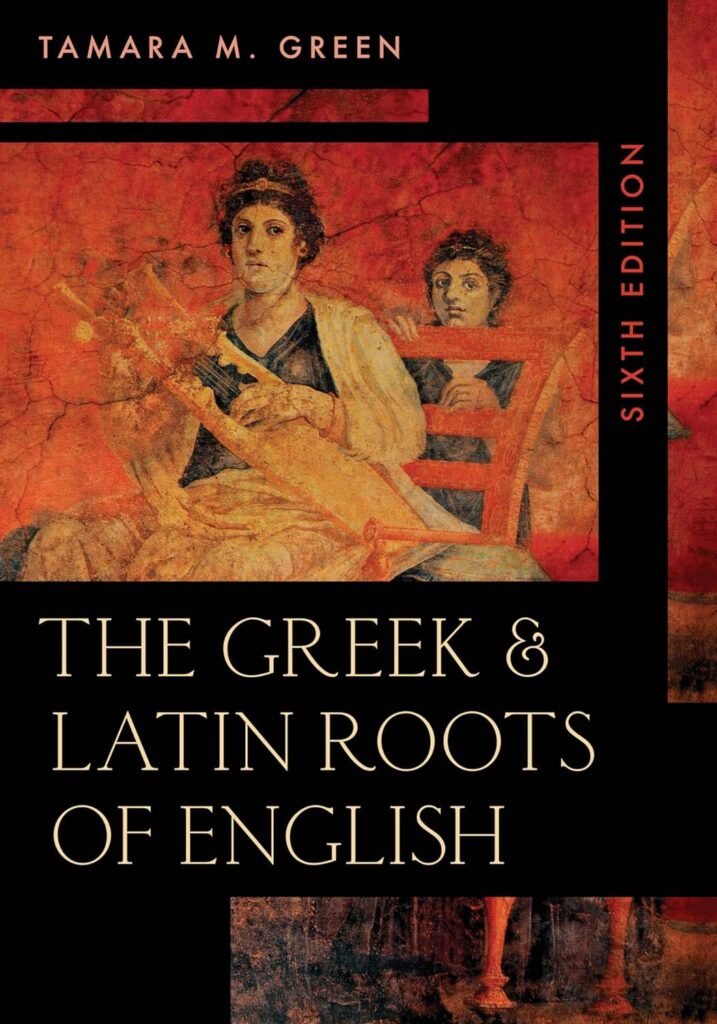
Conclusion
Books on vocabulary building are invaluable tools for enhancing language proficiency, offering a range of strategies from thematic word lists to storytelling, suitable for learners at various levels.
These books not only expand one’s lexical repository but also deepen one’s understanding of word usage, context, and etymology, which is essential for effective communication and academic achievement.
Selecting the right book depends on individual goals and proficiency, with offerings available for beginners and advanced learners, including specialized materials for exam preparation.
Through consistent practice and exposure, learners can significantly improve their command of the English language, benefiting from the nuanced understanding and effective expression that a robust vocabulary facilitates.
We hope you find value in this information; you can contact us if you require any support.
Have a wonderful day!
Image Attribution: All images licensed via canva.com

